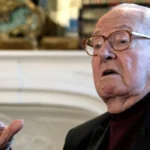Pierre Sellal, French Ambassador, was notably the Chief of Staff of the Minister of Foreign Affairs (then Hubert Védrine) throughout the period of cohabitation from 1997 to 2002. He was Deputy Secretary General for European Affairs (to the Prime Minister) during the cohabitation from 1986 to 1988, and Deputy Permanent Representative of France in Brussels during the cohabitation from 1993 to 1995. In 2018, Pierre Sellal joined August-Debouzy as Senior Counsel.
Who sits on behalf of France on the European Council?
Under the terms of the Treaty, the European Council is composed of the “Heads of State or Government” of the Member States. It is up to each of the latter, depending on their institutional organization, to decide on their representation. At present, for 5 of them, it is the President of the Republic who sits on the European Council (France, Bulgaria, Cyprus, Lithuania and Romania), whereas the presence of the Head of State had long been a French exclusivity. The other 22 are represented by their head of government. It should be noted in this regard that the Portuguese and Polish presidents, both elected by universal suffrage, do not sit on behalf of their country on the European Council.
The tensions that the representation of the country on the European Council was likely to cause during periods of cohabitation were greatly reduced during the 3 episodes of this type that France had experienced by the fact that each country then had two seats on the European Council, occupied respectively by the President of the Republic and the Prime Minister. This was still the case between 1997 and 2002. This situation quite naturally called for close coordination between the two heads of the executive, or even a distribution of roles and interventions defined in advance by mutual agreement.
From now on, in application of decisions taken in the context of the latest enlargements of the Union, each Member State has only one seat in the European Council. The French tradition, since the origins of the European Council (due to an initiative of President Giscard d’Estaing) justifies entrusting this single representation to the Head of State.
What can the European Council decide?
For many years, all major political decisions affecting the future of the Union (revision of the treaties, enlargement, setting the multiannual financial framework, etc.) have been taken by the European Council. However, as the Treaty underlines, the latter “does not exercise a legislative function”. Also, the implementation of its orientations and decisions must give rise to legislative proposals drawn up by the Commission (directives, regulations, annual budget, etc.) which are then the subject of negotiations between the Member States and an adoption procedure involving the European Parliament and the Council of Ministers, in its various configurations.
It is important to stress that the European Council has no hierarchical or legal authority over the Council of Ministers, nor the ability to reform decisions taken by any of the Council formations. In practice, it is the “domestic” authority exercised by the President of the Republic or the Prime Minister over his own ministers that ensures compliance with and monitoring by the Council formations to which these ministers belong of the guidelines defined by the European Council and to which the President or the Prime Minister have subscribed.
In a period of cohabitation, where the President’s authority over the government is attenuated or even non-existent, precise preparation of European Council meetings and the prior search for an agreed position between the President and the government are required in practice: a singular position taken by the President during a European Council that is not subsequently confirmed, at the implementation stage, by the minister representing France in the competent Council would expose him to a complete loss of credibility vis-à-vis the institutions of the Union and France’s partners. The Head of State, whose word would thus be devalued, including in the eyes of his peers, would be the first victim.
Who appoints the French member of the Commission?
The Commission is composed of “one national of each Member State”, and the final choice of the “personalities” that it brings together is made by the Council “on the basis of suggestions made by the Member States”. These provisions of the Treaty implicitly underline that the members of the Commission are not the representatives of their respective Member States. The responsibility of representing the national government to the European Union and its European institutions is in reality that of the ambassador, permanent representative of his country, and not of the “national commissioner”.
In practice, each government generally appoints a member of the Commission corresponding to its political orientations. For some Member States, the position of Commissioner is even part of the balance between political parties in the ruling coalition. However, it is traditional for a Commissioner appointed by a government to remain in place until the end of his term in the event of an alternation in the country in question.
During the 3 previous periods of cohabitation, the difficulties that could arise in choosing French members of the Commission were eliminated by the fact that France, like the other “large Member States”, still had two Commissioners, who happened to be of a political persuasion close to the President or the Prime Minister respectively.
It is up to each Member State to “suggest” the name of a personality from its country to be a member of the Commission. The President of the Republic has an eminent right in this regard to express a choice or preference. However, since it is the Council, in which the ministers sit, which will ultimately adopt the list of members of the Commission (without prejudice to the elements of the procedure involving the European Parliament), a common agreement on the personality chosen between the President and the government appears essential.
This article is originally published on .leclubdesjuristes.com






